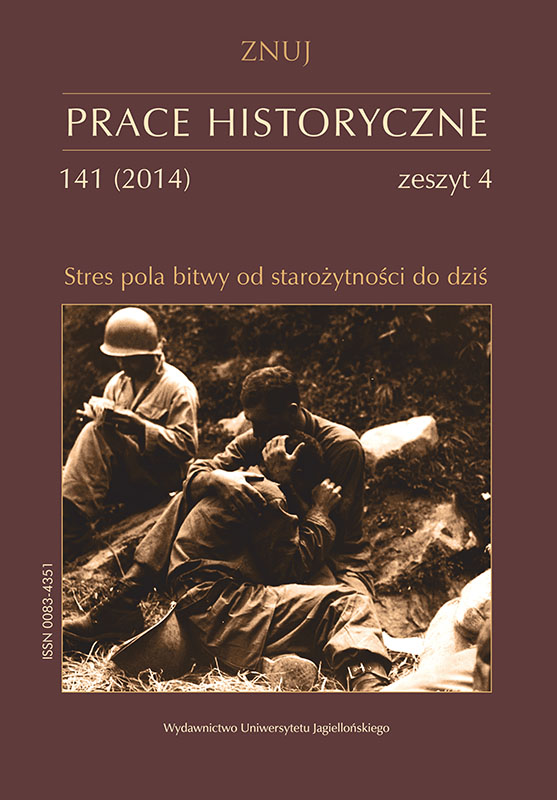Psychologiczne motywacje żołnierskiej brawury w świetle badań nad antyczną inwektywą
Psychologial motivations of soldierly bravado in the light of research on ancient terms of abuse
Author(s): Michał StachuraSubject(s): History, Archaeology, Military history
Published by: Wydawnictwo Uniwersytetu Jagiellońskiego
Keywords: Late Antiquity; Ammianus Marcellinus; invective; audacia; the psychology of battle
Summary/Abstract: The contemporary research on the psychology of the battle field should take into consideration the fact that the ancients did not approach the phenomena relating to the sphere of psychology thoughtlessly and unreflectively, yet they looked upon them in a slightly different manner than the contemporary scholars. It was already Plato who defined the difference between the unequivocally positive courage resulting from the decision of the mind, and audacity being the fruit of extra-rational or non-rational conditionings. The latter appraised positively or else in an ambivalent way in military circles, is regarded as one of the most strongly criticized faults in the political discourse. This ambivalence is well visible in the work of Ammianus Marcellinus which having been written at the close of the ancient era, may be perceived as the epitome of the ancient viewpoint also as regards this issue. An analysis of the various uses of the term audacia with reference to soldierly bravado reveals both the distinction between this attitude and real fortitude (fortitude), as well as its ambivalent appraisal. It seems that the reason of such an ambivalent appraisal may be the ancient man’s fear of those aspects of the human psyche which elude the control of the mind.
Journal: Prace Historyczne
- Issue Year: 141/2014
- Issue No: 4
- Page Range: 819-827
- Page Count: 9
- Language: Polish

